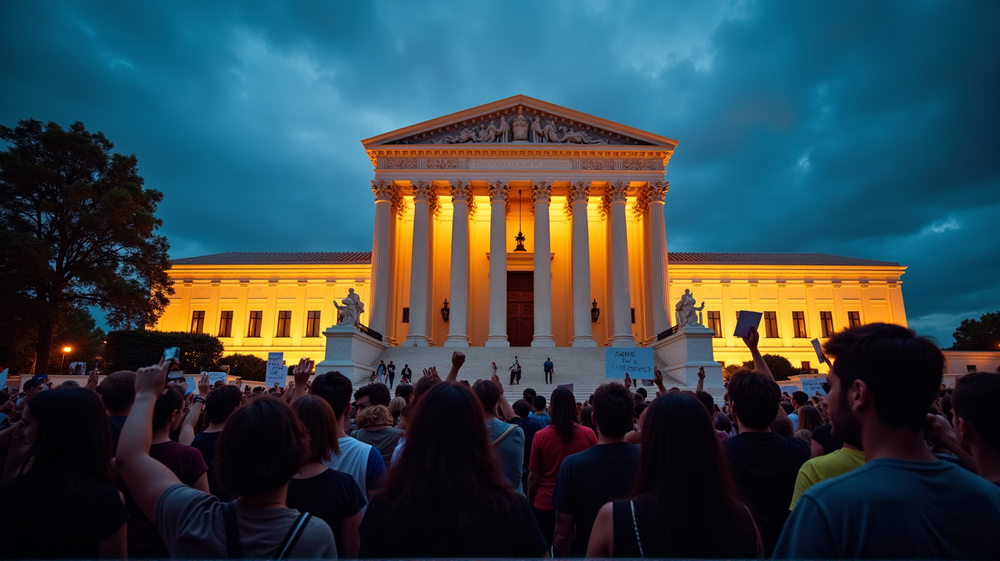What happens when the judiciary’s power is curtailed? On June 27, a Supreme Court ruling set a new stage for how executive orders are contested, with ripples impacting immigrant rights and birthright citizenship.
A Turning Point
As demonstrators swarmed the steps of the Supreme Court holding signs like “Hands Off Birthright Citizenship!”, the complexity of the recent Supreme Court decision was palpable. While the ruling did not directly address President Trump’s divisive executive order on birthright citizenship, it notably curtailed the power of lower courts to issue universal injunctions, reshaping the terrain for legal battles. According to NPR, this shift is a “monumental victory” for some, a loss for others.
The Strategic Pivot
In response to this legal shift, immigrant rights groups swiftly adapted their strategy. By forming a national class action lawsuit, they seek a new path to challenge the executive order threatening birthright citizenship—a cornerstone of American law derived from the 14th Amendment. Their suit underscores a future where potentially thousands of children’s citizenship could be at risk if these executive maneuvers withstand judicial scrutiny.
Legal Voices Amplify Concerns
Keren Zwick of the National Immigrant Justice Center expressed fear that without the restraining power of nationwide injunctions, presidents might engage in unlawful practices unchecked. Meanwhile, William Powell, representing immigrant groups, asserts faith that the fundamental protections of birthright citizenship will be upheld during forthcoming court debates.
Roots of Birthright Citizenship
The battle over birthright citizenship is steeped in historical jurisprudence, linked back to jus soli—the right of the soil—a doctrine embedded in the 14th Amendment. During the Civil Rights era, this interpretation solidified, only to face sporadic challenges over time. Today’s disputes reflect deeper questions about constitutional interpretation and presidential power in shaping immigration policy.
What Lies Ahead
Despite the ruling, the power dynamics within U.S. immigration policy are in flux. Attorney General Pam Bondi indicated future Supreme Court deliberations might change the enforcement landscape further. For now, Wendy Weiser of the Brennan Center for Justice affirms that the fight for maintaining birthright citizenship as a constitutional guarantee presses on, a struggle defined by both new legal tactics and a resilient commitment to upholding civil liberties.
As legal teams prepare to meet again in courtrooms, the nation’s eyes remain fixed on the unfolding story of citizenship, law, and executive power.













